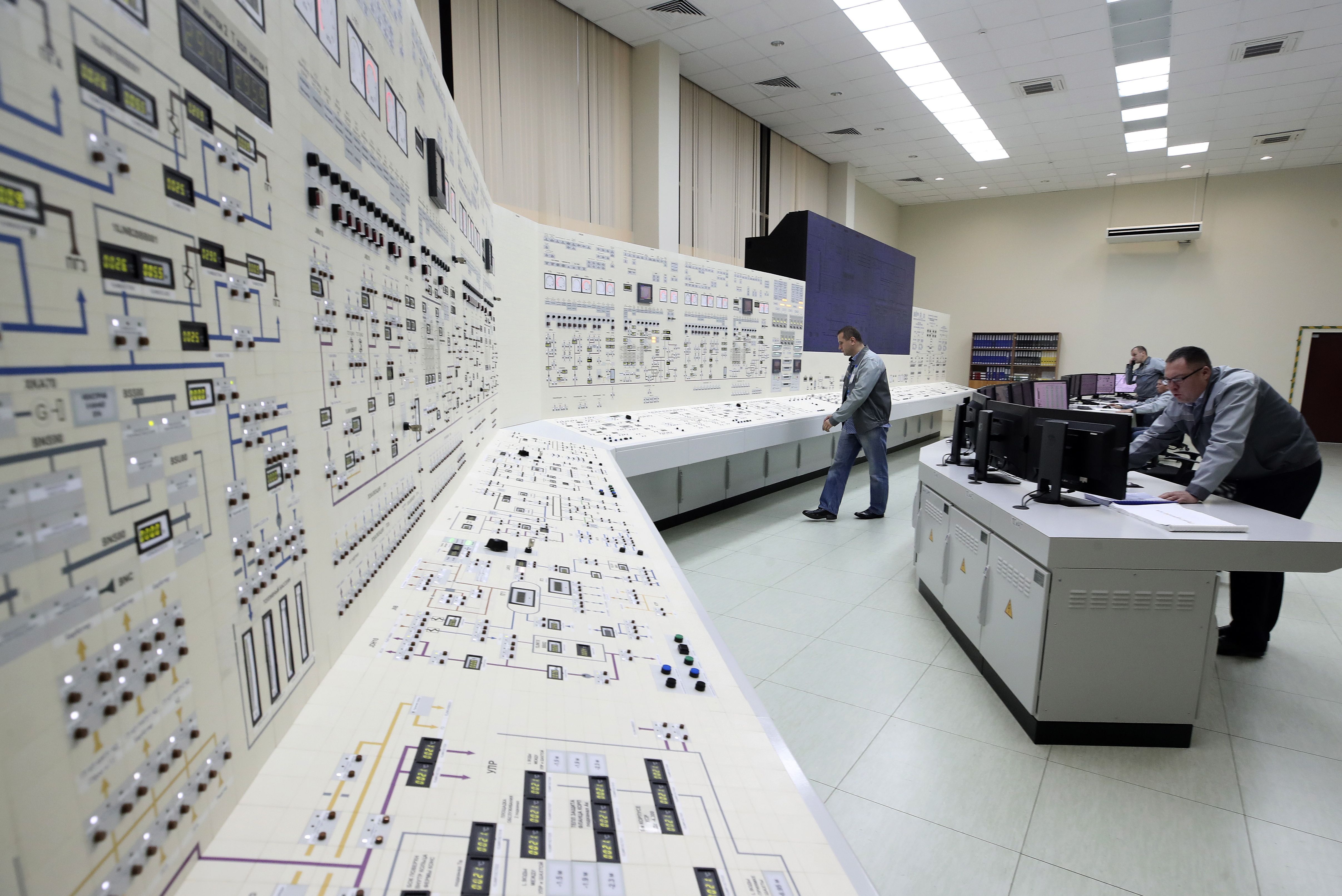The Baltic States and the Belarusian Nuclear Power Plant in Astravyets

Attempts to Block the Power Plant
Lithuania failed in its bid to have construction of a power plant in Belarus suspended. Therefore, it is trying to block the sale of energy from Astravyets, where the only nuclear power plant in the region is being built. The contractor and supplier of the technology is Russia’s Rosatom, and the planned total capacity is 2,400 MW. Despite delays, the power plant will probably be fully operational in 2021.
Lithuania’s main argument is the security issue. It points out the threat posed by an active power plant located several kilometres from its borders and about 50km from Vilnius. It believes that stress tests carried out by Belarus do not guarantee the highest standards of the plant. Lithuania is also concerned that the consequences of the lack of clear communication on the part of Belarus, as was the case with, for example, incidents related to the reactor installation, may be more dangerous in the situation of an operating power plant. Lithuania also accuses Belarus of violating the Espoo and Aarhus conventions on environmental protection and cross-border consultations. It sees an ecological threat in the fact that water from the Neris River, which flows through the Lithuanian capital, is to be used to cool the reactors.
Invoking these fears, in July 2017, Lithuania’s parliament adopted a law banning energy procurement from power plants that do not meet international safety standards, which this is how the authorities view Astravyets. This approach was not changed by the bilateral agreement of June 2020 between Lithuania and Belarus, which undertook to monitor and report disruptions in the construction and operation of the power plant. At the same time, Lithuania increased its stocks of potassium iodide (the main component of Lugol’s iodine) and continues to exert pressure on Belarus by lobbying at the EU forum. As a result, the European Group of Nuclear Regulators (ENSREG), which issued recommendations after positive test verification, will still review Belarus’ further action plan in connection with the construction and commissioning of the power plant.
Lithuania also emphasises that Astravyets poses a threat to the critical infrastructure (including power grids) of all the Baltic States. This, among other things, is due to the fact that they will not be synchronised with the network of other EU countries until 2025 and will remain in the IPS/UPS electricity transmission system, inherited from the USSR and managed by Russia. Therefore, Lithuania’s motivations are also political. It sees Rosatom’s involvement in the construction of the power plant as a factor that may increase Russian pressure on Belarus, and indirectly on Lithuania and the other Baltic States.
The Lack of Unanimity Among the Baltic States
Lithuania has so far failed to convince Latvia and Estonia to sign a joint declaration that they would not buy energy from Astravyets. Moreover, Lithuanian actions highlighted the discrepancy between the Baltic States on this matter. As a result, President Gitanas Nausėda cancelled his participation in the tripartite meeting of presidents in Estonia on 25 June this year, which proves the difficulties in reaching a consensus.
The position of the Latvian and Estonian authorities is not the same. Latvia has announced that it does not exclude the purchase of energy from Astravyets. Latvian energy distributor AST has expressed an interest. Although Latvia supports Lithuania on security issues, it does not want to agree to the boycott of Astravyets. It points to the technical conditions (that the Latvian networks are directly connected with Russia) and the risk that could be posed by a possible faster disconnection of Russia itself from the Baltic States. They have not yet passed the tests of independent functioning of the network in the so-called island system. Latvia is also able to cover about 80% its own energy needs, but this includes a large share of renewable (though not very stable) energy sources, which also require the use of nuclear energy. Latvia’s approach is also due to the fact that Belarus is a trade partner for which Latvia competes with Lithuania. The port of Riga is one of the main transit corridors for Belarusian exports.
Estonia stresses that it has no interest in purchasing energy from Belarus. However, it is also sceptical about the Lithuanian legislation prohibiting the complete import of energy for commercial purposes, pointing out that such regulations are the competence of the EU. The Estonian authorities, on the other hand, support the proposal that entities from outside the EU wishing to operate on the internal energy market should be taxed. Among the Baltic States, Estonia is the most energy self-sufficient, although its main source remains high-emission oil shales. In 2018, Estonia’s energy production was even higher than its consumption. Moreover, Estonia itself is considering building a small modular reactor (SMR) with a capacity of 200–300 MW.
The Future of the Energy Market in the Region
Lithuania’s actions also result from concerns about the future shape of the regional energy market, so they are economically motivated. Lithuania, unlike Latvia and Estonia, is dependent on imports for about 75% of its energy needs. Therefore, striving to develop its own energy sector, the country wants to avoid saturating the market with cheap energy from Belarus. For example, due to the costs of servicing the LNG terminal in Klaipeda, Lithuania does not fully use the potential of the gas-fired power plant in Elektrėnai. In order to protect the domestic market, on the initiative of Nausėda, regulations were introduced in 2019 allowing the government to suspend the concessions for energy sellers cooperating with importers from Belarus.
Lithuania’s concerns are not unfounded, as the wholesale price of energy on the Nord Pool exchange is dynamic. In mid-July, it increased by about 36% in just one week, partly as a result of the instability of renewable energy sources. Moreover, according to an EC report, it was in Lithuania (next to Poland) that the average price of energy for households increased the most (by 14% year on year), reaching 14.34 euro cents per kWh. Among the Baltic States, however, it was the highest in Latvia (15.92 euro cents per kWh) and in Estonia it was the lowest (11.50 euro cents per kWh). Therefore, cost-effective energy produced in Belarus or Russia, supplied to the market partly through the stock exchange and additionally supplementing the shortages, can be perceived as an attractive offer.
Conclusions and Prospects
Lithuania’s actions to limit the profitability of the Belarusian investment in Astravyets have been ineffective, despite pressure on Belarus and the involvement of EU institutions. At the beginning of August, Belarus announced the loading of nuclear fuel into the first reactor. This increases the possibility that energy from the Belarusian power plant will, even if indirectly, affect the market of the Baltic States. Regulations in Lithuania, without the involvement of Latvia, Estonia or the EU, will not result in limiting imports. The final price of energy from Astravyets will therefore be decisive. Even small differences in costs may prove attractive, especially in the post-pandemic economic downturn.
The cooperation of the Baltic States, including the synchronisation process, and the development of the regional energy market, will be determined by EU policy. At the beginning of July, the EC presented a new strategy for integrating the energy system in the EU, which envisages the creation of a transparent market in order to move away from fossil fuels.
Poland supported Lithuania, announcing that it would not import energy from Belarus. This means that for Poland, in the context of the synchronisation of the Baltic States, the need to reduce the risk of power cuts will remain a challenge. This may be achieved by strengthening the grid in the north-eastern regions of the country, as well as by increasing guarantees of reserve capacity. These activities will also be important in the context of the planned development of wind farms in the Baltic Sea region, which will increase the share of renewable energy sources, but from unstable sources.


